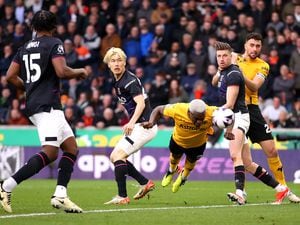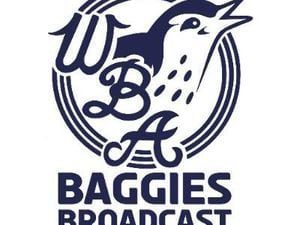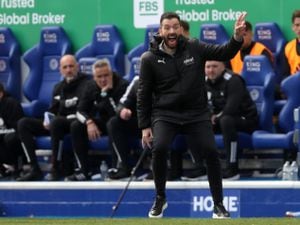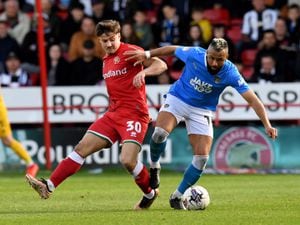WATCH: Fifty years since 1966, Ron Flowers remembers England's World Cup win
Ron Flowers sees the tracksuit and smiles.
"That's the one," he says, pointing at the bright blue garment which has been brought into the conservatory of his Staffordshire home.
The clothing in question is his own training top from the 1966 World Cup and for Flowers, who turned 82 this week, it provides a window into one of the lesser told stories of his long and legendary career.
England's greatest achievement in football was not his. In a career which included three league titles and an FA Cup winner's medal with Wolves, 1966 has always been something of a footnote, albeit a glittering one.
And though he might never have kicked a ball in anger, there can be no question he played his part.
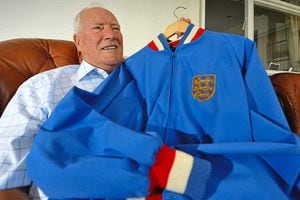
Flowers suspected then, as he still does now, that he was included in Alf Ramsey's 22-man squad for the finals for a specific reason. The oldest member of the squad, he was there to set an example.
"I was there to do a job," he says. "As far as I had been concerned, my England career was finished. I hadn't been expecting the call."
During the couple of hours of his time Flowers has kindly given up to go through the story, it is Ramsey's name who crops up more than any other.
Flowers earned the majority of his 49 caps under Ramsey's predecessor, Walter Winterbottom, finishing as England's top scorer during the 1962 World Cup when a quarter-final exit to Brazil prompted the FA to seek a change of manager.
Winterbottom was sacked and Ramsey, a league title winner as both a player and manager with Tottenham and Ipswich respectively, took his place. The contrast between the two men, Flowers recalls, could not have been greater.
"Walter was, if anything, too nice a gentleman, while Ramsey was a real straight talking man," he recalls, as he sits back at his house in the village of Acton Trussell.
"With Walter, you were brought into things gently. With Ramsey, you did as you were told. He made sure to let you know he was the gaffer straight away."
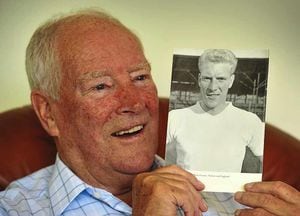
Ramsey's genius in 1966, according to Flowers, was in prioritising the importance of the team over the individual.
This was the time before substitutes, so the manager knew that half of his squad would be watching games from the stand, with no hope of getting on the pitch. Ramsey ensured they never felt left out, whether it be during training sessions, meal times or on the regular trips to the cinema taken during the tournament, while they were lodged in a Hendon hotel.
"There would usually be about three films people would want to watch," says Flowers. "Then it was a case of 'OK, which one do the majority want to see?
"Ramsey tried to keep all the players together. Whatever we did, he kept it together.
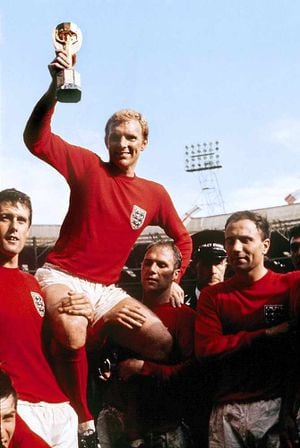
"Ramsey had no star players. We were all the same to him. Don't get them in bits and pieces, that was his view, we are all one.
"You were all treated the same. There were 22 players and we didn't all play. But we all knew what one another was doing.
"It was about knitting it together, not only as a team on the field, but off it as well."
The notion of England's players taking a trip to the local cinema in the middle of a World Cup seems extraordinary by today's standards, yet for Ramsey's team it was an ideal way of killing time between games and taking their minds off the task in hand.
"There was a couple of local cinemas near the hotel," says Flowers. "It was either go to the cinema or stay in and have a game of snooker. You had to find some way to get away from it all, though Ramsey always made sure he had one eye on us."
Inside the camp, according to Flowers, the mood was relaxed, even after a disappointing 0-0 draw with Uruguay in the opening game.
The atmosphere, he recalls, was one of quiet assurance.
"I don't recall us being expected to win the tournament beforehand," he says. "I think there was a feeling we would do reasonably well but there was no-one saying 'we are going to win this' or anything like that.
"Deep down, I think we all felt that we could win it, but we weren't cocky about it. There certainly wasn't anyone prepared to say it out loud.
"You've got to remember, there were some good players in the squad. When you think Jimmy Greaves could not get in the side during the later stages of the tournament.
He was probably the best goal-getter in world football at the time. He could score from anywhere. Yet he couldn't get into the team."
Greaves' injury, sustained in the final group game, saw him replaced in the team by Geoff Hurst and it was the latter whose goal settled an infamously bad-tempered quarter-final against Argentina.
Bobby Charlton then scored both goals in a 2-1 semi-final win over a Eusebio-inspired Portugal to set up a final date with West Germany.
It was there, on the eve of the biggest game in the history of English football, that Flowers experienced one of the all-time 'what might have been moments'.
The story is one which has been repeated many times over the years, though Flowers cannot recall precisely where he was when Ramsey took him to one side and explained, in typically short terms, that Jack Charlton was suffering from a cold and that, if required he would be the one to replace him in the starting XI.
"The message was, be ready," explains Flowers. It was not, as you might expect however, the cause of any nerves, or indeed a restless night.
"It didn't make any difference to my thinking," he says bluntly. "I knew whatever he might have come down with, he would play."
He lets out a laugh, then adds: "Do you really think Jack Charlton was going to miss out on the World Cup final because of a cold? It would have needed to have been one heck of a cold."
Sure enough, Charlton was there on the pitch the following day. Flowers was up in the stands with the 10 other non-playing members of the squad yet Ramsey, typically, made sure they would not be left out of the celebrations which followed the extra-time win.
"Alf said, 'whatever the score is at the end of the game, I want you all down here'," says Flowers. "He had made arrangements to get us on the lift down to him on the bench, so we were all on the field together at the end.
"He was just that kind of man. Everyone was together."
A victory banquet immediately followed the game before the players returned, along with the cup, to their hotel.
If the triumph had happened today, an open-top bus tour and a meeting with the Queen would no doubt have followed.
In 1966, the players met James Bond.
Flowers recalls how a trip to Pinewood Studios the day after the final coincided with the filming of You Only Live Twice.
The thought of Sean Connery, the proud Scot, having his work schedule interrupted by the victorious England football team is one which raises a smile.
Flowers, unsurprisingly, remembers having a cordial conversation with the actor but jokes that "football was off limits!"
Ironically enough, it would be another Scot who helped add a fitting epilogue to Flowers' 1966 tale.
At the time, only the 11 players who featured in the final were awarded medals, a rule which did not change until 1978.
Finally in 2009, following a campaign by the FA among others, FIFA awarded medals to those non-playing members who had missed out in previous tournaments.
So it came to pass that, 43 years after the final, Flowers found himself being presented woth his medal by then Prime Minister Gordon Brown.
"He (Brown) was pretty unpopular at the time – but he was certainly alright by us," laughs Flowers.
For supporters of a younger generation, it must seem remarkable that half a squad could go so long without their medals. Yet for Flowers, typically humble, it was a bonus.
"We never expected the medals, so it wasn't a disappointment," he says. "It was just the way it was. I was part of this thing, yet I never expected to be. All of it was just a nice surprise."


